Top Narratives
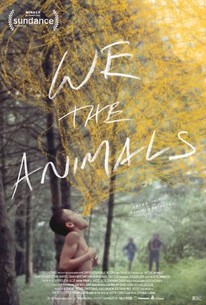
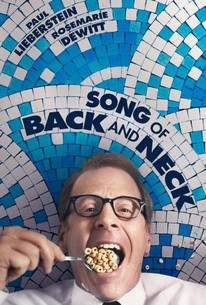


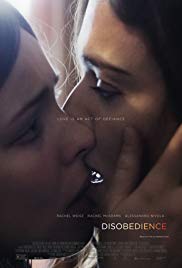
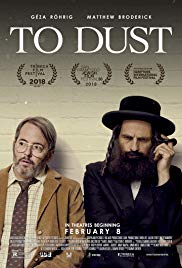
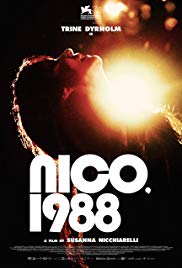
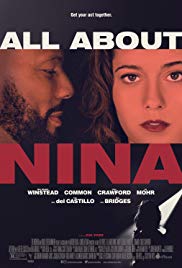
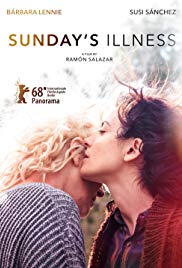
We the Animals, Jonah (Evan Rosado) lives with his mother (Sheila Vand), father (Raúl Castillo), and brothers, Manny (Isaiah Kristian) and Joel (Josiah Gabriel). His sexual identity and imagination awaken during one hot summer. We the Animals is the kind of coming-of-age drama that's not driven by its plot because it doesn't really need one. A plot, after all, is just a construct; it's more important that emotions and other intangible elements can be found within the plot. Fortunately, We the Animals remains focused on its atmosphere and its young protagonist, Jonah. You do learn a little about his dysfunctional family, i.e. his abusive father, but there are no villains to be found here. The screenplay by writer/director Jeremiah Zagar and co-writer Daniel Kitrosser, based on the novel by Justin Torres, successfully gets inside the head of Jonah so that you can sense what he's thinking and feeling even without words. The images, some of which are quite hypnotic and haunting, combined with the exquisite musical score, magical realism and stylish camerawork speak volumes louder than words. The editing and cinematography help to make the film feel very cinematic. Zagar and Kitrosser should be commended for what they've avoided doing. We the Animals never becomes pretentious, lethargic, preachy, maudlin or heavy-handed. It also avoids the use of flashbacks and doesn't judge its characters; it treats them as human beings. In turn, it's easy to be thoroughly engrossed in the life of Jonah because every scene is grounded in humanism. You can actually feel the warmth during many scenes. At a running time of 92 minutes, We the Animals is a captivating, visually stunning and genuinely moving experience. It's even more emotionally resonating than Moonlight which would make for an interesting double feature. We the Animals opens at Angelika Film Center and Landmark at 57 West on August 17th, 2018. In the romantic dramedy Song of Back and Neck, Fred (Paul Lieberstein) works at his father's law firm and suffers from back pain. When he meets Regan (Rosemarie DeWitt), she persuades him to go to an acupucturist where he discovers that he has a very bizarre and unique talent. Lieberstein not only stars as the lead, but also serves as the film's writer and director. In now way does it seem like this is a vanity project, though. The underrated Rosemarie DeWitt brings charm to her role while Lieberstein bring charisma to his. The screenplay is funny, witty and poignant without being schmaltzy. Fred comes across as a lonely man who's going through a sort of middle-life crisis. He's reminiscent of Seymour from Ghost World. Many of his problems probably come from the toxic relationship he has with his domineering father. The refreshingly unpredictable and un-Hollywood screenplay combines romance, drama and comedy with fantasy elements while remaining grounded in humanism. It's a bittersweet story as well as a character study with an unconventional ending that rings true which makes it a cut above your average romantic dramedy. Song of Back and Neck opens on November 30th, 2018 via The Orchard. The best performance by actor in the festival is Jeffrey Wright as Louis in O.G.. Wright stars as a convict who's nearing the end of his 24-year sentence in prison, but runs the risk of getting into trouble when he fights with other prisoners. Wright gives a convincingly moving and raw performance that invigorates the film. He's the film's heart and soul. Although it's not as physically gritty as other prison dramas like A Prophet, at the it's emotionally gritty. Plot-wise, there aren't that many surprises, but that's alright because screenwriter Stephen Balber and director Madeleine Sackler design a window into Louis' soul while Jeffrey Wright manages to open that window very wide. It's up to the viewer, of course, to peer into the window into Louis' soul, ultimately. Wright gives the best performance of his career and deserves awards consideration. For a more bitter, darker and biting drama, look no further than Lemonade which, just like Song of Back and Neck, has a very unappealing title. Mara (Mãlina Manovici), a Romanian woman with a 9-year old son, Dragos (Milan Hurduc), meets and marries Daniel (Dylan Smith) a few months before she immigrated to America. A corrupt immigration officer (Victor Gomez) abuses his power by forcing her into a sexual relationship with him to spare her from deportation. The screenplay by writer/director Ioana Uricaru and co-writer Tatiana Ionascu is unflinching with slow-burning suspense. The scene with the initial confrontation between Mara and the immigration officer in his vehicle does drag on a bit too long, although it never becomes lethargic. Bravo to the filmmakers for being unafraid to shed light on the plight of illegal immigrants and on government corruption. It wouldn't be surprising if a story like that of Mara's happens very often in America. Don't expect anything to be sugar-coated in Lemonade; it's a bleak and heartbreaking story with a moving performance by Mãlina Manovici. There are two different films involving the Orthodox religion. The first, Disobedience, centers around a married woman, Esti Kuperman (Rachel McAdams) who has a sexually-charged affair with her childhood friend, Ronit Krushka (Rachel Weisz). How long she can keep the secret from her husband, Dovid (Alessandro Nivola), and how he'll react when he finds out are just a few of the questions that linger in the mind throughout the film. Writer/director Sebastián Lelio and co-writer Rebecca Lenkiewicz keep the film's somber, melancholic tone consistent with very little levity. The cinematography and lighting along with the cloudy weather compliments the that tone very effectively. There's also some interesting symbolism used when it comes to the color of blue which resembles the colors of a hamsa. Even the title card is in a light blue reminiscent of the hamsa. Both Rachel McAdams and Rachel Weisz give tender and nuanced performances, but the most important element of the film is that they actually have chemistry. The only weakness, although minor, is the bizarre choice to show them spitting into each other's mouth while making love. Disobience is not nearly as powerful or moving as Blue is the Warmest Color, but it comes close. Bleecker Street opens it on April 27th, 2018. The second Orthodox-related film at the festival is To Dust, starring Matthew Broderick as Albert, a biology professor who agrees to help Shmuel (Géza Röhrig), a Hasidic cantor, to properly decay the corpse of his wife who recently died. What ensues is a dark comedy with mostly dry and offbeat humor along with some surprisingly poignant and profound moments as Shmuel deals with his grief and gradually befriends Albert. At times, the pacing feels a bit slow, but the characters are compelling enough to hold your attention. There's some rather grotesque images involving decay, though, that might not be for the faint of heart. To Dust isn't a laugh-out-loud comedy, but it's a gentle, wise and refreshingly inspired one that blends its dark and comedic tones without feeling clunky or uneven. It's not your typical buddy comedy and it's captivating to watch what unpredictable directions the plot takes. Good Deed Entertainment opens it on February 8th, 2019. There are two actress who give among the best performances in the festival. One of them is Trine Dyrholm who knocks it out of the ballpark as Christa Päffgen, a.ka. Nico, a singer in the biopic Nico, 1988, written and directed by Susanna Nicchiarelli. On the surface, the film is about sex, drugs and rock'n'roll, but it's so much more than that thanks to Dyrholm who's mesmerizing to watch every step of the way. She manages to successfull find the emotion truth of her role and, in turn, becomes Nico. You forget that you're watching an actress giving a performance because it feels so real. ALthough the film itself doesn't break new ground when it comes to its style and narrative, Nicchiarelli doesn't shy away from showing Nico at her most vulnerable moments which makes her all the more human. She's a flawed character and not always a very likable one, but that's okay because it makes her more interesting. There should be more complex roles like this for older actresses. It's also worth mentioning that Nico, 1988 never overstays its welcome at a running time of 93 minutes and doesn't have a dull moment from start to finish. Magnolia Pictures opens it at Film Forum on August 1st, 2018. The other outstanding performance belongs to Mary Elizabeth Winstead in All About Nina. She plays a stand-up comedian who breaks up with her ex-boyfriend and moves to Los Angeles to start a new life. She soon meets, hooks up with and romances Rafe (Common) who sweeps her off her feet. The screenplay by writer/director Eva Vives is wise, witty and genuinely heartfelt with a few clever surprises that won't be spoiled here. Many scenes ring true without any contrivance or corniness to be found. Some of the humor is rather bold and a little gross-out, i.e. someone's sweat dripping on someone else while they have sex, but it doesn't take away from the film's narrative momentum nor does it lead to unevenness. All About Nina's greatest asset, though, is Winstead who's the film's heart and soul. She gives the best performance of her career and handles the nuances of her role with conviction. Perhaps the best comparison would be to Jenny Slate's performance in the similar Obvious Child, but this film is better-written and directed than that one. It opens on September 28th, 2018 via The Orchard. The best film of the Tribeca Film Festival is Sunday's Illness, an elliptical, poetic and quietly moving drama about an estranged daughter, Chiara (Bárbara Lennie), who shows up out of nowhere to visit her wealthy mother, Anabel (Susi Sánchez). Chiara persuades her to spend ten days together with her. Nature plays an important character in the film, especially a large tree that serves as a metaphor. Bravo to writer/director Ramón Salazar for trusting the audience's intelligence, emotions and patience. At times, the pace moves slowly, but it never drags. There are many haunting images to be found which will linger in your mind for quite some time. It's also fascinating to observe the dynamics between the estranged mother and her daughter. Salazar should also be commended for avoiding flashbacks even though the characters' past has a lot of significance over their present. This is in many ways a film for adults that's beautifully shot, intelligently written and thoroughly engrossing. It should be seen on the big screen, but can be found streaming on Netflix beginning June 15, 2018.
Top Documentaries
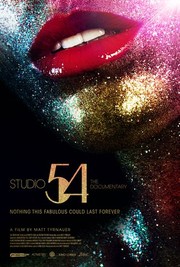

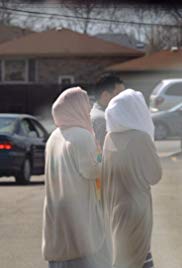
Studio 54, directed by Matt Tyrnauer is a lively and fascinating glimpse of the iconic New York dance club, Studio 54. Steve Rubell founded the club in 1977 with his business partner, Ian Schrager. They co-owned it until 1980 when they went to prison for tax evasion. Tyrnauer charts the rise of Studio 54 including the details of what Rubell, Schrager and their publicity team did to make the club the hottest ticket in town, especially with celebrities. Not everyone was allowed past the velvet ropes at the front entrance, but those who were among the lucky ones had the time of their life and felt free to be themselves. Not surprisingly, there was plenty of drugs, drinking and sex besides the dancing going on there, but that's not what this documentary is fundamentally about. Through archival footage and interviews, Studio 54 shows you what it was like to be inside the club and what made it so iconic. Rubell and Schrager are far from perfect human beings and made poor financial decisions which led them further and further into financial debt. Audiences who are already familiar with the club might find the focus on its downfall to be more interesting than its rise because that's where the doc has the most tension and meatiness that allows for it to avoid becoming a puff piece. At briskly-paced 90 minutes, Studio 54 opens at IFC Center via Zeitgeist Films. Howard, directed by Don Hahn, is a documentary biopic about Howard Ashman, the songwriter who was responsible for many iconic songs in Disney movies, i.e. The Little Mermaid, Beauty and the Beast and Aladdin. Although it does celebrate his life and work, it never becomes hagiographic---it's a warts-and-all introduction to his life and work. Fans of Disney animated films will especially find this doc to be delightful and illuminating as they learn more about the songs that they've cherished and in what context they were written as well as their inspiration. Ashman dealt with a lot of emotional pain through his life and later battled an illness, but continued to work. He comes across as a brave, honest and brilliant artist who's well worth getting to know. The Feeling of Being Watched is the most terrifying and enraging doc of the festival because it sheds light on how the FBI has been secretly surveilling Muslim Americans in the U.S. and how difficult it is to find out the precise details of the secret operations. The filmmaker, Assia Boundaoui, investigates how the FBI had surveilled her own family members and uncovers Operation Vulgar Betrayal. The FBI had 33,000 pages of documents all about her and family. That statistic alone is very frightening, but it's just the tip of the iceberg: to get ahold of those documents unredacted becomes a huge challenge for her. This doc raises important questions about privacy, democracy and prejudice all of which are human rights issues. If you're ever doubted that the U.S. government would use a tactic straight from the fascist playbook (Hitler did the same as he shut down democracy), prepare to be enlightened, alarmed and disgusted by this suspenseful and searing documentary.
Main Page
Film Festivals
______________________________________________________

